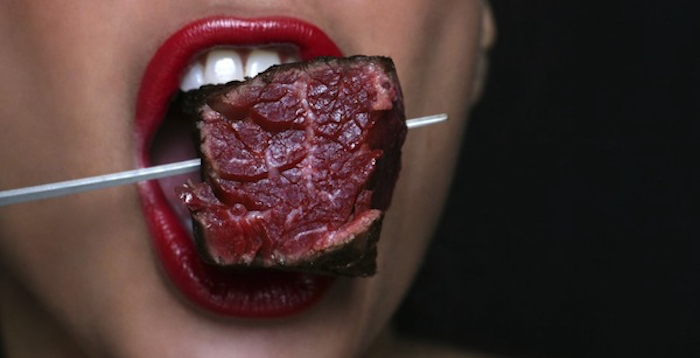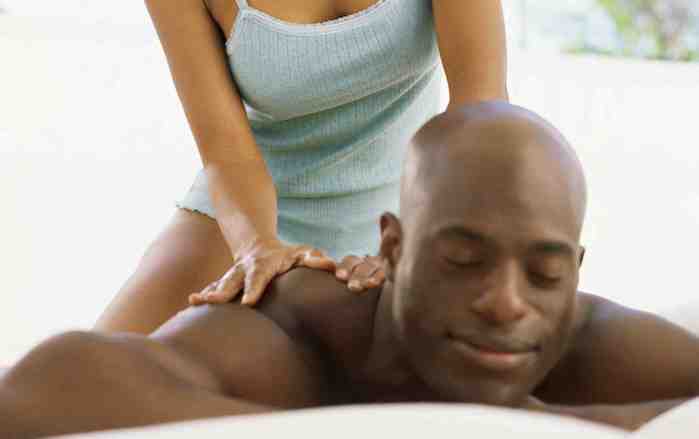Same Love, Differently Abled
Table of Contents
The term “disabilities” covers a range of conditions including both congenital and acquired disabilities.
Approaching love, romance and intimacy can be especially challenging when dealing with disabilities. While the desire for love and intimacy is the same for everyone, finding romance is complicated by physical limitations and psychological challenges in a judgmental world.
First, the reality is that everyone is a little bit broken, and we all face disabilities in the bedroom at some time or another. That’s the price of reaching adulthood. That is not to diminish the scope of challenges a person with disabilities may face, but it is hopefully a
reminder that we all bring personal struggles into a relationship.
You might hold the belief that sex with disabilities is a hassle and burdensome. The truth is
that sex with a disability can be better than sex without it.
Hassle is about attitude. For one person it may seem daunting to think creatively, maneuver, adjust, find alternative positions; for another it is a blessing. Navigating the
myriad possibilities of how to be intimate allows people to escape routine sexual habits and keep things interesting. It supplies the opportunity to expand the meaning and experience of sex, and that is anything but a hassle!
In The Ultimate Guide to Sex and Disability, authors M. Kaufman, M.D., C. Silverberg, and F. Odette explain it like this:
“Knowing when you get tired, realizing your limits, sensing when you’re aroused by even the slightest physical cue—all are things that come with practice and are gifts that many others don’t have. It’s often assumed that disability creates a split between a person and their body because of the things they ‘lost.’ While this may happen to some, for many of us it’s more true that learning to live without disabilities brings us closer to our bodies.”
“The only disability in life is a bad attitude.” –Scott Hamilton
Below are some myths about sex and disabilities that need to be eliminated to make way for accurate knowledge, sexual skill building and differently-abled, erotic, intimate experiences.
♥ People with disabilities are asexual.
♥ If it isn’t addressed, arousal won’t happen.
♥ Their genitals don’t work properly so they can’t experience an orgasm.
♥ Only certain kinds of people hook up with disabled partners.
♥ The disability is more important than sexuality.
♥ People naturally know how to have sex, and if they don’t, they shouldn’t be having it.
♥ It is better not to risk reproduction.
♥ Sexuality is not part of healthcare.
♥ They are either innocent, too pure to have sex with or helpless victims, unable to have good sex.
♥ People with disabilities aren’t at risk for sexual abuse.
The list above is 100% incorrect.
The hardest part of building a new relationship may be letting your guard down enough to allow for physical and sexual pleasure. Being hyper-aware of how you are “different” can hinder your ability to live fully in the moment. The single most important key in overcoming
this challenge is the exact same key that remains vital to any and all successful relationships: communication.
Sex is not something you’re born knowing how to do well. Human beings don’t intrinsically know how to perform sexual acts, but rather require years of education and guidance on the subject. In my work with differently-abled clients, we focus on three basic fundamentals that are actually universal and not specific to differently-abled partners:
What Your Mind Says
First, be aware of what you’re saying to yourself. One of the oldest clichés is “no one can love you until you learn to love yourself.” Well, the reason that it’s such an overly used phrase is that it’s so very true.
No matter what challenges life may have given you, before anyone will be able to truly love you, you have to be able to comfortably and confidently say three things:
1. I am worthy of love.
2. I am worthy of happiness.
3. I am worthy of respect.
4. I am worthy of great sex.
Yes, GREAT sex. Not “adequate.” Not “fine.” And certainly not “what the hell was that?” Say it with me now: I. Am. Worthy. Of. GREAT. Sex.
What Your Body Says
Not only is it important to pay attention to what your mind is telling you, you must listen and respect what your body is telling you. Your body is smarter than you are, so respect its signals, its red flags, and its orange cones that signal rough roads ahead. One of the exercises I recommend to my clients is to have a conversation with your body, including your most intimate parts. Give your body compliments and listen to your body’s responses as it will always tell you the truth and serve you well if you treat it like you are madly in love with it, all of it, inside and out.
If your sexual organs could talk, what would he or she say? And how would you respond?
While learning how to express yourself sexually, it’s important to masturbate. Not only is it pleasurable in a way that doesn’t involve being exposed to another person’s eyes, but also it’s very important learn or relearn one’s body, to explore, and be creative. Masturbation is good for your health as a form of stress relief, it boosts your mood by releasing pleasure endorphins, acts as a natural sleep sedative, and can even relieve some forms of chronic pain such as headaches.
In order to tell someone how to touch you, you first have to know how you want to be touched.
What Your Mouth Says
Now that you’ve made peace with the inner world, it’s time to express it to the outer world, most notably the ones you are inviting into your personal space. If you’re going to get to someplace beautiful, you might have to start someplace ugly: the cold, hard truth.
Talk about your limitations. Explain your fears, your history and your desires. Being vulnerable is the ultimate sign of strength so you must be bravely fragile and say “I don’t know what, if anything, will happen. I don’t know where this journey will take me but if you’re willing to try, I’m ready to go.”
People often think of sexuality as those physical behaviors that occur between the sheets — specifically, sexual intercourse, but a range of other behaviors and paradigms also encompass the term sexuality.
It is not about skill, but about honoring oneself and/or another individual(s) at that particular moment, similar to an interactive dance.
Yes, sexuality includes erotic fantasy, masturbation, procreation, and physical activity that can excite, (or is meant to excite) the genitals and/or the body’s eroticism. But it also encompasses fetishism, turn-ons, and sexual orientation, which can be much more fluid than simply straight, bi or gay.
Sexuality is expressed in various ways that may include affection, tenderness, the desire to give as well as receive pleasure, compliments, companionship, tolerance, intimacy, verbal and non-verbal communication and love.
Sex and sexuality are a state of mind. All are natural; all are multifaceted, fluid and expansive. It is the integration of physical, emotional, intellectual and social aspects of an individual’s personality.
Discover Your Own Happily Ever After
We get a lot of advice from the outside world on what our happiness should look like. Parents try to steer kids away from fruitless careers. Friends off er critiques of romantic partners. Strangers make judgments that can feel like standing in front of a firing squad.
Ultimately though, we must embrace the life and love that brings us the most personal joy. We alone must stand in the middle of the life we live on a daily basis. Sometimes the days are easy and sometimes they’re a battleground, so when you feel like you’re fighting for
survival, why not fight for a life you believe in? Creating a legacy that is truly an honest representation of who are you, without apology or remorse is an incredible thing to behold, and something we can all strive for.
It’s impossible to live a life free of mistakes and challenges. And, really, why would you want that? Without mistakes there can be no forgiveness, without forgiveness there can be no love! It is a glorious feeling to overcome the obstacles that cause us to occasionally trip
and fall. We learn, we grow, we evolve, we change, we love, we lose, and we love again.
As the errors of our ways come to light, it’s important to remember this: if you’ve made a mistake, apologize for what you’ve done, never apologize for who you are.
Embrace the things that make you different. Enjoy the journey and all its unexpected detours. Find the path that makes your heart sing.
Love the ones who inspire you to discover the best version of yourself. You’re living the story of your life, so make sure that you’re creating the best opportunity for a genuinely satisfying Happy Ending.
+++
Excerpt from: NeuroLoveology: The Power to Mindful Love & Sex by Ava Cadell
































